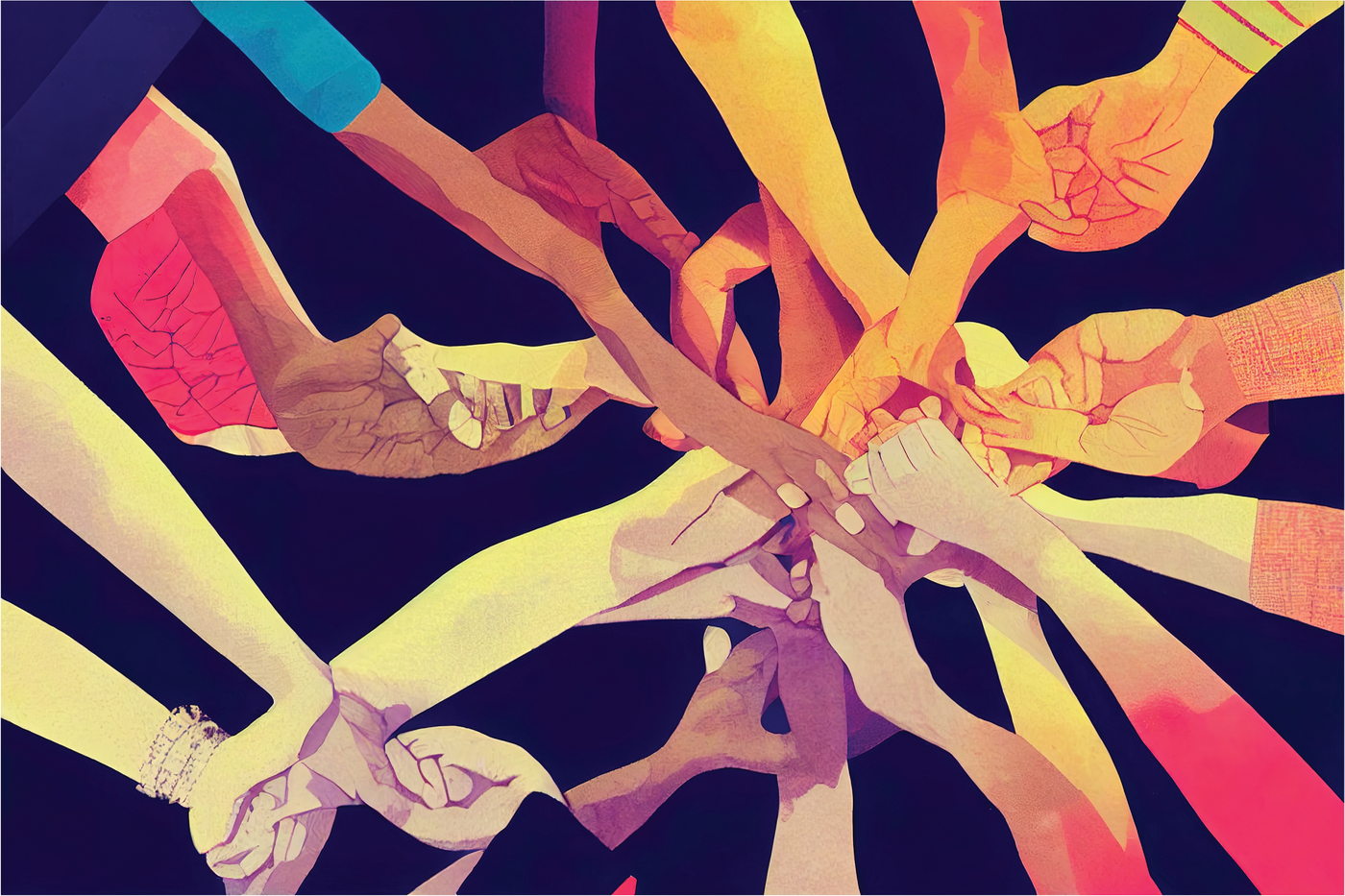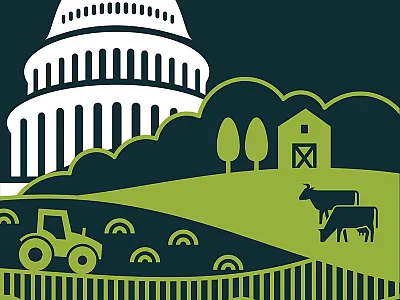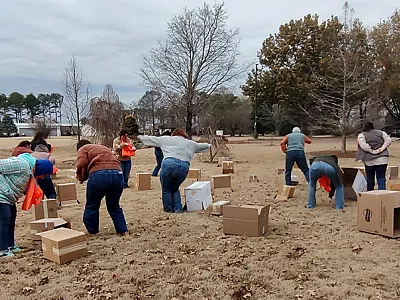What Is Critical Allyship?

Critical Allyship is utilizing one’s privilege, which arises from one’s positionality within a system of oppression, to take meaningful action to advance the goals of the oppressed. Critical Allyship requires aspiring allies to embrace the collective responsibility to deconstruct these systems in the interest of equity and justice. At its core, Critical Allyship requires a redistribution of power and resources.
Let’s break down that definition, focusing on some of the important concepts.
Privilege is any unearned advantage that one possesses solely due to one’s membership in a dominant social group. Privilege does not always mean that you have been given any obvious additional support or resources. In many, if not most, cases, privilege manifests as the absence of barriers to participation and success. Members of dominant groups simply have the advantage of not having to devote time, energy, and other resources to overcome challenges that are inherent to the experience of those in the oppressed group. White people do not have to deal with racial profiling and stereotype threat. Men do not have to deal with the cultural expectations women face regarding reproduction and child rearing. United States citizens do not have to deal with immigration rules and visa requirements. Abled people do not have to navigate a world with literal barriers to access and inclusion at every turn. Cis‐gendered people do not have to deal with legislation that threatens their right to exist and live their lives fully.
These few examples of privilege highlight the next two important concepts needed to understand Critical Allyship. None of these privileges would exist if our society did not manifest them through the many cultural norms, policies, and conscious and unconscious decisions that create and perpetuate systems of oppression. Race and gender roles are social constructs. The rights of immigrants, rights of transgendered people, and laws providing access to the physically and mentally disabled are politically charged issues that are decided by lawmakers elected by the American people. Universal accessibility is a matter of including the needs of people with a diversity of ability in the design of physical, digital, and social infrastructure. Yes, these systems of oppression are deeply entrenched in the fabric of our society and institutions and are reinforced daily by many who benefit from the status quo. But they are not inevitable, and they can be changed.
Because these systems exist, and create situations where some are privileged and some are not, it becomes important to think about one’s positionality within the system in order to begin to consider how one might provide Allyship to others. Positionality is the understanding that each individual has a certain amount of privilege and influence within a system of oppression based on a unique combination of personal and institutional factors that manifest as time, energy, experience, social connections, technical skills, physical infrastructure, and financial resources. To be clear, there is no hierarchy of oppression. Just because an individual has access to certain resources does not mean that they did not work hard or overcome their own challenges within these systems to obtain their current position. But every day, there are situations that arise where one person or group has the ability to help another person or group because of some difference in their current position within the system. These are opportunities for Critical Allyship.
You may have noticed the emphasis on Critical Allyship in these definitions. This is to distinguish between efforts that have a meaningful impact on deconstructing systems of oppression through persistent action and accountability and passive or performative forms of Allyship that primarily result in the aspiring Ally feeling good about their intentions but have only a superficial impact on the systems that perpetuate inequity and injustice.
Do’s and Don’ts of Practicing Critical Allyship
✓Do: Acknowledge privilege and positionality. They exist, and by reflecting on and being mindful of how they have impacted your experiences, you will be able to better identify how you can utilize them in your Allyship.
✓Do: Educate yourself on systemic barriers to inclusion, equity, and justice (DEIJ). Resources can be found in many places, but if you need guidance on where to start, reach out to those who have been given a formal role as DEIJ educators. Do not expect the groups that you aspire to be an Ally of to teach you the basics.
✓Do: Ask what your role as a potential Ally is or can be. Reach out to folks that you think you can help, and ask what they need. Do not assume that you know what needs to be done or that someone even wants your help.
✓Do: Listen more, speak less. Allyship is humbling and a learning process. Resist the urge to insert your ideas and opinions into the discussion, and allow the people you are working for to identify solutions to the challenges they face every day.
✓Do: Be mindful of how much you can give. No one can pour from an empty cup, so be mindful of self‐care and recognize that your long‐term commitment and contributions are more impactful than anything you can do at any one moment in time.
✓Do: Build capacity for Allyship within your networks. Use your social capital to educate and empower your peers, employees, students, family, friends, and anyone else in your sphere of influence. Your greatest impact may be through supporting others in their Allyship.
✓Do: Intervene when you observe injustice occurring. It is everyone’s responsibility to make the Societies a welcoming environment, so if you see something, say something. Educate yourself on how to effectively intervene as a bystander so that you feel empowered to act when needed.
✓Do: Accept criticism graciously, and strive to do better in the future. You will make mistakes. Apologize sincerely, learn from the experience, and continue your efforts after incorporating what you’ve learned into your praxis.
⨯Don’t: Call yourself an Ally. Allyship is not an identity; it is an ongoing effort to serve others, building relationships based on trust and accountability. Being known as an Ally is earned through actions of Allyship towards a specific community and is not claimed based on good intentions.
⨯Don’t: Center yourself or your needs. Your role is determined by the people that need your Allyship, and thus, their goals are your goals. If you require support in your Allyship efforts, seek it from other aspiring Allies or those that it is expected of as part of their role in your institution.
⨯Don’t: Impose emotional labor. Doing this work has many highs and lows, and there will be times where you want to talk about how you feel about it all. There is a time and place for this, and it can be a part of the process of building deep relationships. What you should avoid is acting on the urge to ask others to validate your experience when you are doing work that really isn’t about you.
⨯Don’t: Show up only when it suits you. Allyship is based in trust and accountability, which requires commitment even when it isn’t convenient. The schedule for taking action to lift others out of oppression isn’t for you to decide.
⨯Don’t: Make excuses. It can be difficult to acknowledge when you or someone you care about makes a mistake or does something actively problematic out of ignorance, but it is an important step in recognizing how we all are socialized to reinforce systems of oppression throughout our lives. Embrace these moments as opportunities for learning and growth.
⨯Don’t: Expect recognition or awards. Your role as an aspiring Ally is to take direction from those you seek to serve, do the heavy lifting, and redirect any attention and resources to the groups you are supporting. If your efforts do receive outside recognition, use it as an opportunity to turn focus back to the community and the challenges that still need to be addressed.
⨯Don’t: Be afraid. Allyship is based in courage and love. Take action out of hope, not fear.
⨯Don’t: Give up. It can seem at times like the systems we are fighting against are too powerful to overcome, but don’t let yourself get discouraged when things get tough. We need everyone to be a part of the solution, so keep in mind a vision of the brighter future that awaits us when there is equity and dignity for all.
How to Get Involved with Allyship in the Societies
There are many ways to get involved in DEI initiatives within the Societies. Here are a few ideas to get you started.
- Volunteer to assist with initiatives of the Diversity, Equity, and Inclusion in ASA, CSSA, and SSSA Committee
- Judge the Diversity Poster Contests
- Help organize a DEI webinar
- Participate in the Diversity Summit at Annual Meeting
- Nominate your colleagues for awards
- Introduce yourself to your DEI board representatives
- Mentor early career researchers
- Introduce your trainees to the structure and operating norms of the Societies, as well as your personal networks, to reduce barriers to participation
Text © . The authors. CC BY-NC-ND 4.0. Except where otherwise noted, images are subject to copyright. Any reuse without express permission from the copyright owner is prohibited.









